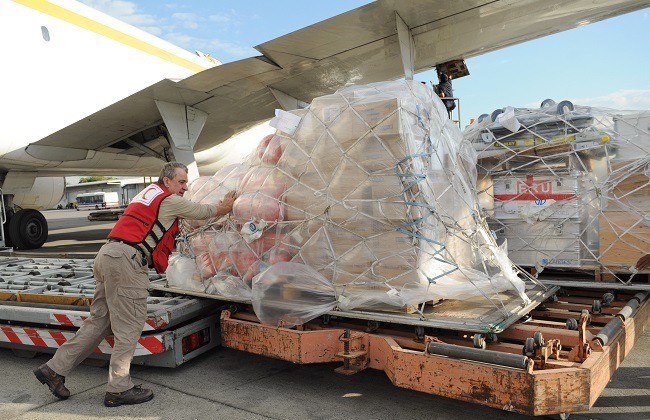
November 2010: The Canadian Red Cross field hospital arrives in Port-au-Prince, the first time it was deployed to Haiti.
An Emergency Response Unit is a standardised package of trained personnel and modules of equipment, ready to be deployed at short notice. They are designed to be self-sufficient in remote and low-resource environments for a minimum of one month, and are typically operational for up to four months, but can be used for a longer timeframe as needed.
The ERUs have been designed and packaged in a way that specific services can also be deployed depending on health care needs in the most efficient way. This approach provides flexibility in the response; it can be tailored to meet the specific needs and scope of the emergency – especially in small- to medium-scale natural disasters, public health emergencies, such as epidemics, or protracted crises.
Canadian Red Cross ERUs on Standby:
Red Cross Emergency Clinic (RCEC)
The RCEC provides initial emergency care of injuries and other significant health care needs for adults and children.
Services include:
- Triage
- Assessment
- First aid
- Stabilisation and referral of severe trauma and non-trauma emergencies
- Care for minor trauma and non-trauma emergencies
It also provides basic care of communicable disease presentations, can manage exacerbations of chronic diseases and basic emergency obstetric and newborn care. It can treat 100 outpatients a day and has 20 beds for patient observation. The RCEC runs 12-14 hours per day with between 10-12 Canadian health delegates working alongside local medical and nursing staff, as well as local Red Cross/Red Crescent volunteers.
Red Cross Emergency Hospital (RCEH)
The RCEH covers the same services as the RCEC, but it also provides inpatient critical care for adults and children, as well as general and obstetric surgery for trauma and other major medical conditions.
Services provided include:
- Mass casualty triage
- Assessment and advanced life support
- Complex wound and fracture management
- Life-saving general and obstetric surgery
- Inpatient care for non-trauma emergencies
- Basic general anaesthesia
- Digital x-ray
- Blood transfusion capability
- Laboratory
- Early rehabilitation services
It can treat 200 outpatients per day and has a capacity of 20-100 beds. The RCEH runs 24 hours per day with between 15-20 CRC delegates working alongside local medical and nursing staff (and integrating them), as well as local Red Cross/Red Crescent volunteers.
The Canadian, Finnish, French, German, Japanese, Norwegian and Spanish Red Cross all maintain similar Health ERUs, to respond to health needs in emergencies. Joint deployments are often used to maximize resources available globally.